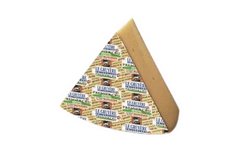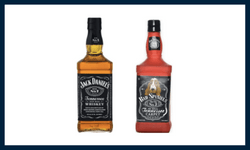We have two trademark news updates this month:
In our February 2022 newsletter, we discussed the importance of “geographical indications” in trademark law. You may recall that a geographical indication is an association between a geographical region and a particular product. To quote ourselves:
Champagne is from the Champagne region of France, Parmigiano Reggiano cheese and Prosciutto di Parma ham from the Parma region of Italy, Toscano olive oil from Tuscany, Roquefort cheese from the region of the same name in France. Then there is Irish Whiskey, Darjeeling tea, Florida oranges, Idaho potatoes, Vidalia onions, Washington State apples, and Napa Valley Wines.
These are internationally protected trademarks and selling products that carry a false geographical indication may be deemed an infringement. We pointed out that geographical indications are sometimes difficult to obtain. Take for example the case of GRUYÉRE cheese. Although Gruyère is a French-Swiss Alpine region, the USPTO rejected the French cheesemakers’ trademark application, which was based on the assertion that Gruyère cheese can only originate from Gruyère. In other words, “Gruyère cheese only originates from the Gruyère region of Switzerland, otherwise it’s just cheese.”
The cheesemakers unsuccessfully appealed the USPTO’s decision to the US District Court in Virginia, the lower court finding that “the factual record makes it abundantly clear that the term Gruyère has now, over time, become generic to cheese purchasers in the United States.” At the time of our article, the cheesemakers had filed an appeal.
The United States Court of Appeals for the Fourth Circuit handed down its opinion on March 3 of this year. It affirmed the US District Court’s decision ruling that the term Gruyere was generic and not limited to cheese made in the French-Swiss Alpine region. The appellate court was persuaded by the following facts:
- The FDA standard of identity for “Gruyère cheese” was evidence that the term GRUYÉRE is generic;
- The majority of Gruyère-labeled cheese imported from United States was imported, not from the French-Swiss Alpine region, but from outside the Gruyère region;
- A substantial volume of Swiss private label cheese is relabeled and sold as simply Gruyère without reference to its origin; and
- The undisputed evidence in the record indicated that other cheese companies labeled domestically produced cheese as “Gruyère.”
All told, the cheesemakers failed to persuade the appellate court that they should be granted a United States trademark. Quoting the court,
The FDA standard of identity, the pervasive sales of non-Swiss non-French cheese labeled as Gruyère in the United States, and the common usage of Gruyère “established that when purchasers walk into retail stores and ask for [Gruyère], they regularly mean” a type of cheese, and not a cheese that was produced in the Gruyère region of Switzerland and France (citation omitted).
So, unless you thought otherwise, Gruyère cheese is now officially just cheese (in the U.S., anyway).
In the other big trademark news of the month, Jack Daniel’s finally had its say before the US Supreme Court, where it argued that VIP Products’ line of cute, humorous squeaky dog toys — replicas of liquor, beer, wine and soda brands, including Jack Daniel’s — labeled with humorous names related to dog poop amounted to trademark infringement, tarnishment and dilution. We have been following this case since November 2020 when VIP sued Jack Daniel’s in the Federal District Court for the District of Arizona, requesting the court to make a determination that VIP was not infringing or diluting the Jack Daniel’s trademarks.
You may recall that Jack Daniel’s won that lawsuit, but VIP appealed to the US Court of Appeals for the Ninth Circuit, which reversed the District Court on First Amendment grounds. Jack Daniel’s appealed to the United States Supreme Court and this March, the parties argued their positions before the Court.
Jack Daniel’s lawyers argued that “Jack Daniel’s loves dogs and appreciates a good joke as much as anyone,” but doesn’t want its fine whiskey associated with dog poop. VIP argued that it wasn’t infringing the Jack Daniel’s trademark but instead was spoofing it. According to NPR, the justices struggled to reconcile “their own previous decisions enforcing the nation’s trademark laws and what some of them saw as a potential threat to free speech.” On the one hand, Jack Daniel’s argued that the trademark was a property right, which restricts speech. VIP, argued on the other hand, that iconic brands are like celebrities, and “people are constitutionally entitled to talk about celebrities and, yes, even make fun of them.” Although some of the justices failed to see the humor in dog poop and whiskey, it remained unclear as to how they would treat this case. In fact, three of the justices were uncharacteristically silent.
We’ll see who gets the last laugh.
— Adam G. Garson, Esq.



